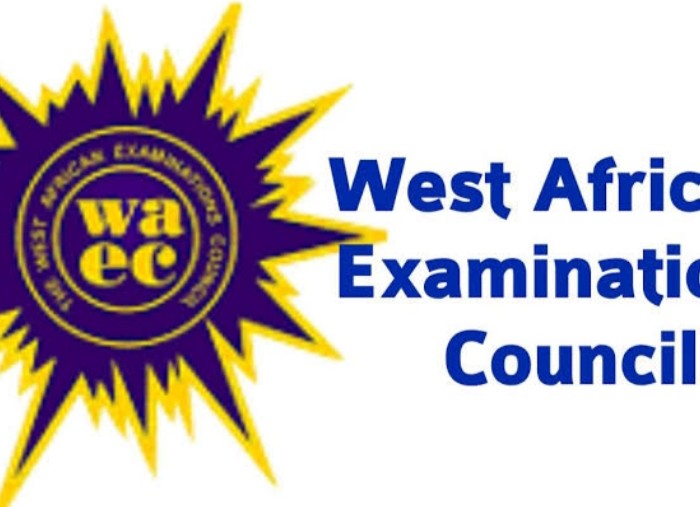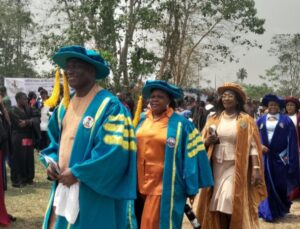
Logo
* Spans 7 weeks
* 1,621,853 candidates registered
* Assures of safety of candidates in flashpoints
* Cautions against Exam malpractices
By Jon Egie with agency report
West Africa Senior School Certificate Examination (WASSCE) 2023 will commence on Monday, May 8 and run through Friday, June 23; spanning a period of seven weeks.
Head of National Office (HNO), West Africa Examination Council, (WAEC), Mr Patrick Areghan disclosed this in Lagos yesterday.
He said council was aware of the State if insecurity in the country and was making adequate arrangement for the safe conduct of the examination.
[the_ad id=”16914″]
According to him, there are many flashpoints all over the country, and conducting examinations in such areas, requires extra security arrangement.
“Consequently, we are liaising with the Inspector General of Police, Brigade Commanders, other security agencies and the various state governments to provide security.
“This is in order to ensure that the examination is conducted under a secure and safe environment. We have also sought the intervention of the Minister of Education in this respect.
“Similarly, our zonal and branch offices have reached out to various security outfits in their respective locations for assistance. Courtesy visits and other forms of appeals have been made and we have been assured of full cooperation of the security agencies to this effect.
“If and when the need arises, schools in insecurity-prone areas would be relocated to safe havens, with the full approval, cooperation and participation of the Federal or State Government concerned,” he said[the_ad id=”16918″]
A total of 1,621,853 candidates from 20,851 secondary schools across the country registered for the examination.
Out of this number, 798,810 are male, representing 49.25 per cent, while 823,043 are female, representing 50.75 per cent.
The HNO noted that on the whole, the candidature for the 2023 WASSCE (School Candidate) increased by 13, 868 over the figure of 2022, which was 1,607,985, for the same diet.
He said that for the second time in succession, the council had successfully reverted to the May/June period for the conduct of the examination, describing it as remarkable.
According to him, the significance of this landmark is that WAEC and the various member States, with the exception of Ghana, have again found a common ground in respect of their academic calendars.
“This shows a massive recovery from the devastating effects of the COVID-19 pandemic. Our sincere gratitude goes to the minister of Education and his ministry for this memorable achievement and to the registrar to council, for his untiring efforts,” he said.
He noted that the council had established a “Self-Service” system for candidates, through the CHATBOT Platform.
Areghan stated that this was to enable them to access their entries, which in most cases the schools do not allow them to see, contrary to instructions.
[the_ad id=”16917″]
According to him, the candidate Self-Service is a service on the Request Management System/Chatbot (https://request.waec.ng) that allows students to confirm data uploaded for them by schools in order to make necessary corrections (if any)on such.
He said that It provided two key services on the Request Management System — Confirmation of Entry/Registration and Confirmation of Continuous Assessment Score (CASS), among others.
On the issue of the use of National Identification Number (NIN) as requisite for registration for the examination, the WAEC boss noted that though not compulsory, the NIN was made a component of the registration requirements.
“The policy came into being in line with the directive of the Federal Government. Candidates were expected to supply their NIN at the registration stage, but it was not a compulsory requirement.
“This is in order to avoid denying many eligible candidates access to the portal/examination. Even after the registration exercise, candidates were still allowed to submit their NIN for upload.
“Therefore, no candidate was disqualified from registration as a result of non-submission of NIN at the beginning of the exercise, or even later,” he explained.
Areghan, however, frowned at deliberate efforts by some private school owners not to adhere to registration deadline.
According to him, the ugly development has been a huge challenge to the entire examination procedure.
“There was a very serious challenge of non-adherence to the registration deadline, to the extent that what we started on Oct. 10, 2022, with a set deadline of Jan. 27 and eventually extended to March 31.
[the_ad id=”16920″]
“It could not even end due to the shenanigans of some private schools who were in the habit of shopping for external candidates to make up numbers, contrary to the policy which does not allow the enrolment of private candidates for School Candidates examination.
“Entries eventually closed on April 15. The examination starts on Monday, May 8.
“But it will surprise you to know that some schools are still bombarding us with requests for entries, even after the pre-examination, examination and post examination materials have been produced and are being distributed to the various states of the federation,” he said.
On the issue of examination malpractice, he warned that the council would deal decisively with any kind, irrespective of who was involved.
According to him, penalties for involvement in examination malpractice will always, without compromise, be meted out to those found involved.
He said that such candidates, invigilators, supervisors, schools, and WAEC officials, among others, as would be penalised as approved by the Nigeria Examinations Committee (NEC).
Areghan said that the NEC was the highest decision-making organ of the council that deliberated on examination matters in Nigeria.
He said that council, on its part, had rolled out several awareness campaigns and organised seminars for school proprietors.
Areghan noted that principals, students, teachers and other key stakeholders in branch and zonal offices nationwide had also been exposed to such awareness campaigns, in order to sensitse them of the ills of the ugly trend.
“Similarly, we have made flyers, banners, posters and other forms of reminders to further keep the message afresh on the minds of all stakeholders.
“It is, therefore, on this note that I call on parents and guardians to encourage their wards to study diligently and desist from engaging in any form of examination malpractice.
[the_ad_placement id=”advert”]
“The media must play its watchdog role too. The various ministries of education should call their principals, teachers and other officials serving as inspectors and/or supervisors, to order.
“Supervisors should desist from allowing candidates to make use of their cell phones, or availing the candidates of their own (supervisors’) cell phones.
“Any form of aiding and abetting or collusion, should be avoided. Every candidate and examination functionary must play by the rules, which are well stipulated in the WAEC Syllabus and Guidelines for the conduct of examinations, issued to schools.
“Erring schools will be derecognised, erring officials adequately punished, while erring candidates would lose their results,” he warned, and stated that in line with council’s usual practice, the results of candidates sitting the examination would be released 45 days after the conduct of the last paper.
[the_ad_placement id=”advert-1″]
According to him, the certificates will be printed and issued to schools in less than 90 days after the release of results.
He added that WAEC in Nigeria, in its bid to serve the Nigerian child better, had acquired a state-of-the-art digital certificate printer, that enabled it to print and issue certificates to candidates in record time.
Source: (NAN)






